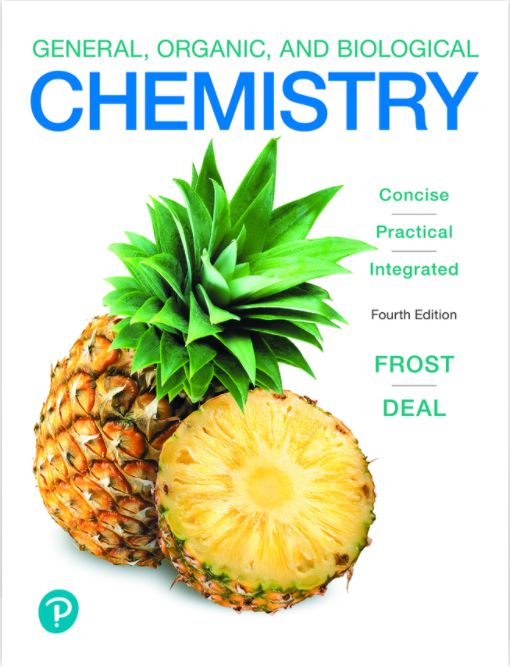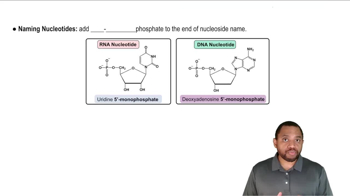Textbook Question
Identify each of the following as a purine or a pyrimidine:
a. guanine
703
views


 Verified step by step guidance
Verified step by step guidance



Identify each of the following as a purine or a pyrimidine:
a. guanine
What is the difference between ribose and deoxyribose?
List the names and abbreviations of the four nucleotides in RNA.
Provide the products for each of the following condensation reactions:
a.
Provide the products for each of the following condensation reactions:
b.
What is the name of the bond that joins nucleotides in a nucleic acid?